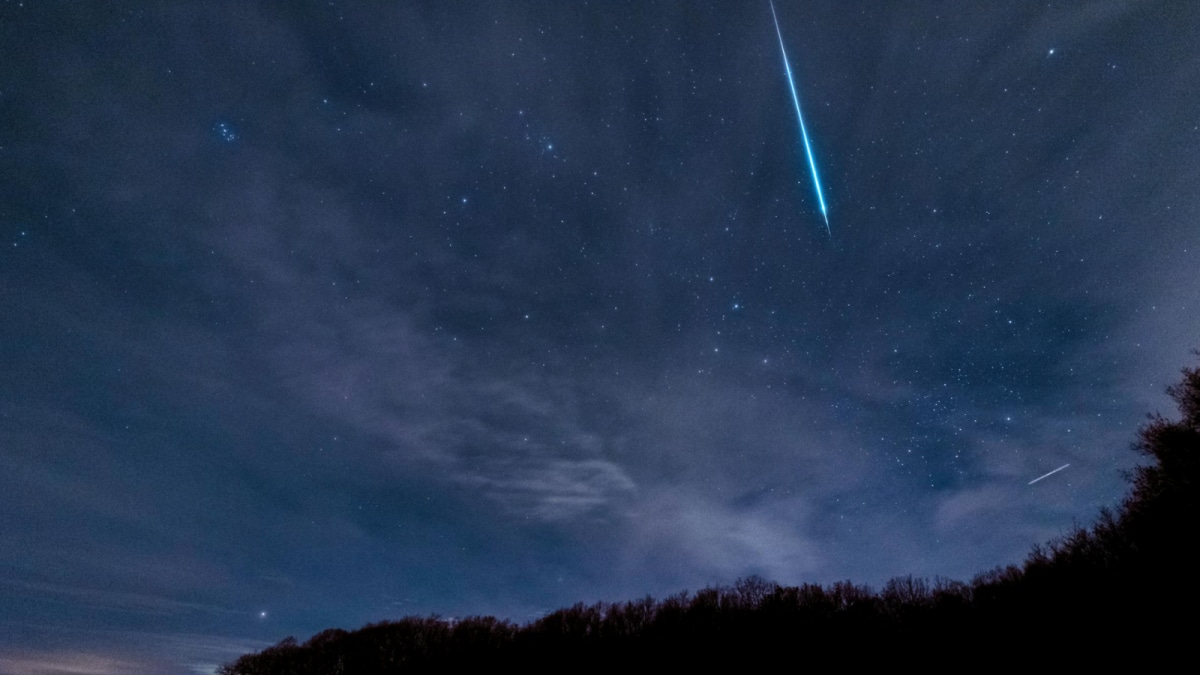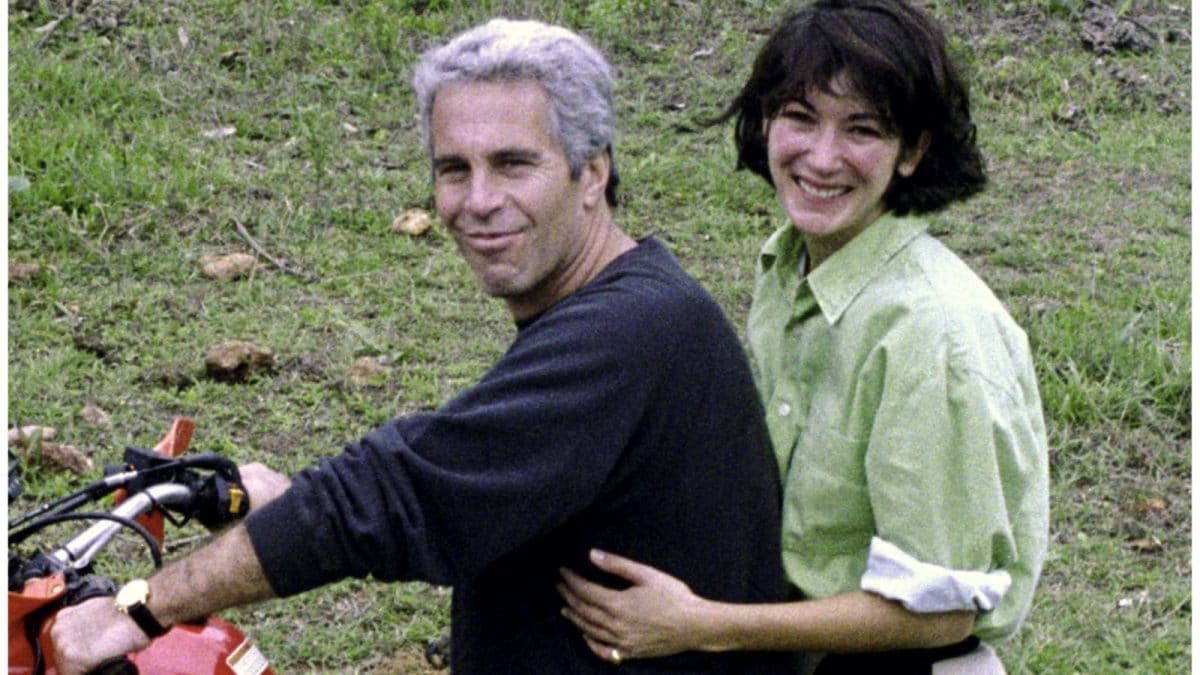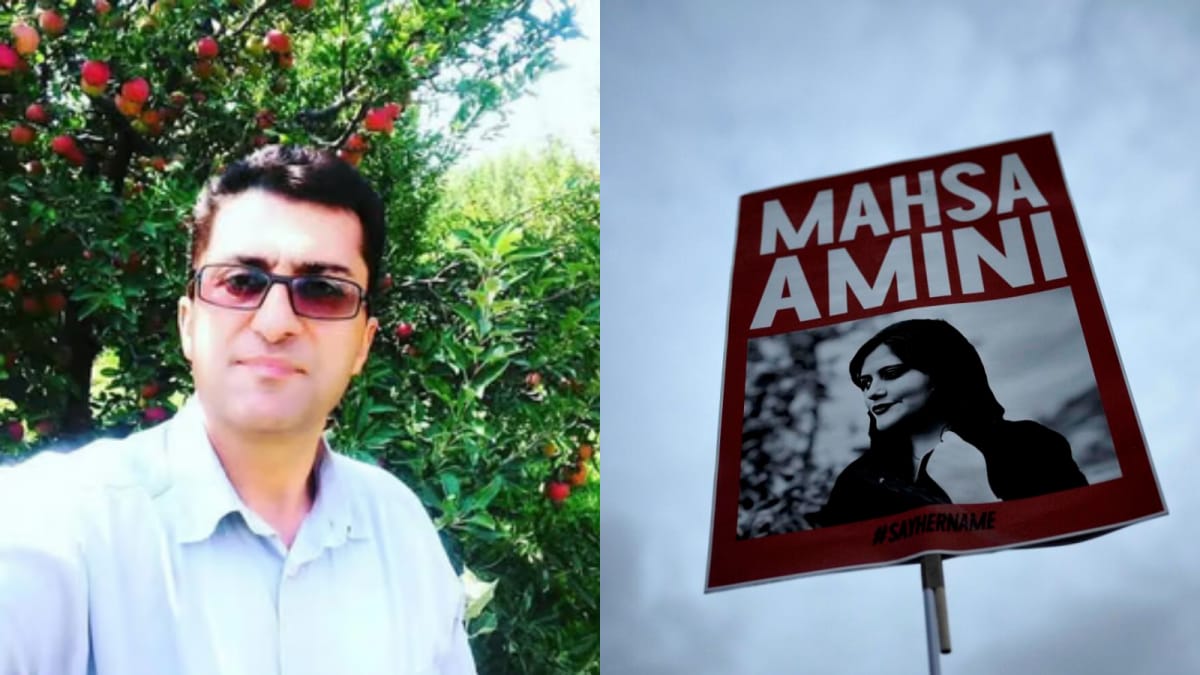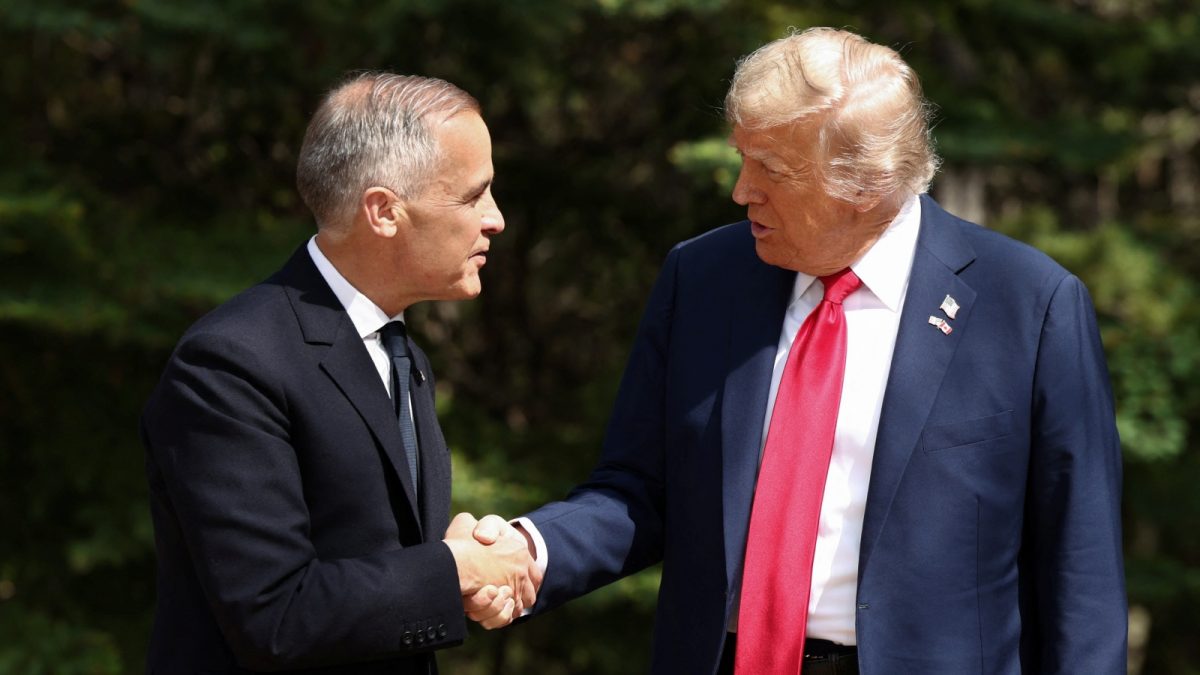Last Updated:July 18, 2025, 17:22 IST
Operations by the United States and coordinating Canadian law enforcement agencies have uncovered links between fentanyl trafficking, illegal immigration, and Khalistani groups

Canadian Prime Minister Mark Carney has struck back at US President Donald Trump’s new 35% tariff threat, declaring Canada has made 'vital progress' against fentanyl trafficking. File pic/Reuters
US President Donald Trump, at present under the spotlight for his firm stance on global trade tariffs, has also made significant efforts to combat the illegal fentanyl trade and unauthorised immigration. Since taking office, his tough policies have prompted numerous operations by the United States and coordinating Canadian law enforcement agencies, uncovering connections between fentanyl trafficking, illegal immigration, and also Khalistani groups.
In a notable international development, the US Drug Enforcement Administration (DEA) recently announced the arrest of infamous Indo-Canadian gangster Opinder Singh Sian in Arizona on June 27. Sian, linked to Khalistani elements in Canada, was apprehended following a DEA operation initiated in 2022 based on intelligence from Turkey. The operation revealed Sian’s extensive global drug trafficking network, accused of smuggling large quantities of fentanyl precursors and methamphetamine from Canada to the United States and Australia.
The affidavit details how Sian managed chemical shipments from China to Vancouver and then to Los Angeles through a trucking business run by a Chinese cartel member, Peter Pend Zhou. His “Brothers Keeper" gang in British Columbia is connected to the Kinahan Crime Cartel in Dubai and the Hezbollah Group, with involvement in arms smuggling, extortion, homicide, and Khalistani extremist activities. The arrest also uncovered his ties to Irish, Turkish, and ISI-backed Pakistani-Khalistani drug cartels. Notably, Parupkar Singh, “Parry Duley," Sian’s cousin, has been placed on a no-fly list by the Canadian government and is associated with Canadian politician Jagmeet Singh. Sian is also closely related to Khalistani “Saudagar" Sandhu, a director and former president of Gurdwara Dashmesh Darbar, highlighting the deep connections.
Meanwhile, eight individuals of Indian origin, including a man wanted by India’s Investigation Agency (NIA), were arrested in California in relation to a gang-related kidnapping and torture case. Among those detained is Pavittar Singh Batala, a gangster from Punjab linked to the banned terror group Babbar Khalsa , facing terror-related charges by NIA. The arrests, made on a Friday, followed a coordinated operation involving multiple law enforcement agencies. The individuals arrested include Dilpreet Singh, Arshpreet Singh, Amritpal Singh, Vishal Singh, Gurjat Singh, Manpreet Singh, and Sarbjit Singh.
Additionally, in April 2019, Harpreet Singh, alias Happy Passia, a wanted gangster-turned-terrorist, was arrested by the FBI and the US Immigration Department. Passia faces numerous charges in Punjab for violence, extortion, and terror-related incidents, including 16 blasts. The Amritsar native has been named in 33 First Information Reports, and 10 Look Out Circulars have been issued against him. A dossier prepared by Punjab police accuses him of orchestrating 14 grenade attacks, one IED blast, and one rocket-propelled grenade attack in the state.
Also, Peel Police in Canada, through “Project Pelican", successfully dismantled a large narco-terror network, arresting individuals suspected to be Khalistan sympathisers. This operation led to Canada’s largest ever drug seizure, with 497 kg of cocaine valued at $47.9 million. Nine people, including seven Indian-origin men settled in Canada, were arrested. Investigations revealed the network used commercial trucking routes from the United States to Canada and maintained ties with Mexican cartels and US-based distributors. Importantly, the funds from these illicit drug operations were found to be financing anti-India activities, including protests and referendums, demonstrating a direct link between organised crime and extremist agendas.
Each of these cases has a common link to Khalistani separatism. Most of the accused are of Indian origin and wanted by Indian law enforcement agencies for various cases. Many names are part of the Indian dossier.
It is surprising that despite the Indian community being largely respected abroad, the actions of some extremist elements tarnish the reputation of the entire community. Since President Trump came to power, India and the US have been closely cooperating to stop the illegal smuggling of fentanyl into the United States, which includes a crackdown on transnational gangs.
Ahead of Prime Minister Narendra Modi’s June visit to Canada, New Delhi and Ottawa decided to establish a mechanism for close cooperation on security matters to address terrorism and extremism. For the first time, Canadian Khalistanis are experiencing a false sense of victimhood, affecting the mindset of the new generation. Their actions and criminal activities have led to increased anti-immigrant sentiment and anti-South Asian hate in Canada and the US.
Sian’s close relatives were on the gurdwara management committee, and they successfully undermined Sikh religious bodies. Due to false propaganda, anti-Indian hate has spread.
Navdeep Gill from Surrey, British Columbia, told News18, “Sikhs are proud people. They (Khalistanis) have created a false sense of victimhood and affected the minds of the new generation. Their actions and criminal activities, such as taking law and order into their own hands and car rallies, have led to increased anti-immigrant sentiment and anti-South Asian hate in Canada and the US."
Gill also mentioned that “One of the accused, Sian, arrested by the US law enforcement agency, has relatives on the gurdwara management committee. Extremist groups have successfully destroyed Sikh religious bodies."
Another prominent member of the South Asian community, speaking on condition of anonymity, told News18, “After the arrest of hardened criminals, wanted terrorists, and gangsters tied to Gurpatwant Singh Pannun’s so-called SFJ ‘Khalistani Referendum’ circus by top US law enforcement agencies like the FBI, ICE, and local sheriff departments in California, the truth is now out in the open. These thugs were not freedom fighters. They were fugitives hiding behind the Khalistani mask to push violence, fear, and organised crime."
He also said, “For the first time, there is real anger and resentment brewing among the mainstream Sikh diaspora. People are finally calling out these elements for what they are—goons trying to take over our sacred gurdwaras by intimidating honest Sikhs and poisoning our community with fear and division."

Siddhant Mishra is a Senior Special Correspondent at CNN-News18, covering foreign affairs and international relations. With over 12 years of experience in journalism, he has also reported extensively on crime, ...Read More
Siddhant Mishra is a Senior Special Correspondent at CNN-News18, covering foreign affairs and international relations. With over 12 years of experience in journalism, he has also reported extensively on crime, ...
Read More
News world How Trump's Fentanyl Crackdown Has Put The Spotlight On Khalistani Groups In The West
Disclaimer: Comments reflect users’ views, not News18’s. Please keep discussions respectful and constructive. Abusive, defamatory, or illegal comments will be removed. News18 may disable any comment at its discretion. By posting, you agree to our Terms of Use and Privacy Policy.

 4 hours ago
4 hours ago
















